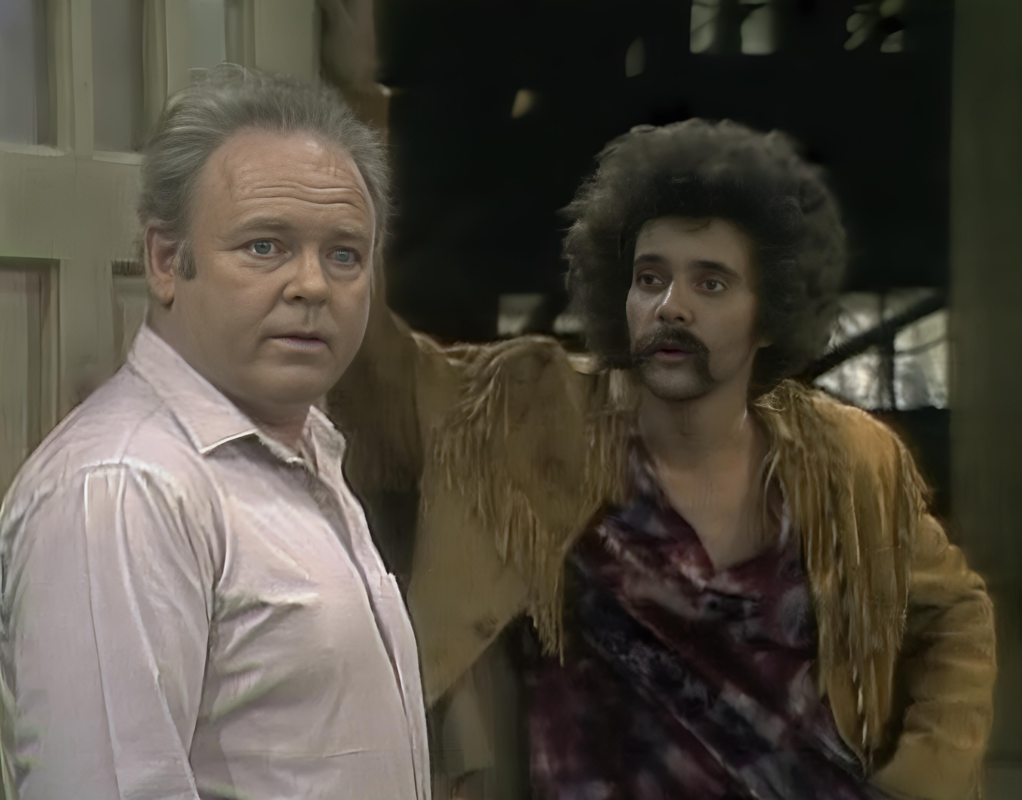
Patrisse Cullors, co-founder of the Black Lives Matter movement and a prominent advocate for racial justice, has critically examined the role of the iconic television show “All in the Family” in shaping racial discourse. Through her activism and work, Cullors offers a nuanced perspective on how the show both contributed to and complicated conversations about race in America.
“All in the Family,” created by Norman Lear, aired in the 1970s and became a cultural phenomenon for its bold approach to social issues. The show featured Archie Bunker, a character known for his bigoted views, which were often used to highlight and critique the prejudices prevalent in American society. Despite its intentions, Cullors argues that the show’s impact on racial discourse is complex and multifaceted.
“While ‘All in the Family’ aimed to expose and satirize bigotry, it also risked normalizing those very attitudes,” Cullors explains. “Archie Bunker, as a character, became an archetype of the ‘lovable bigot,’ which can be problematic because it may desensitize viewers to the harmfulness of his views.”
Cullors points out that satire, especially when dealing with sensitive issues like racism, can be a double-edged sword. “Satire requires a sophisticated audience that can distinguish between the critique and the behavior being critiqued,” she says. “Unfortunately, not all viewers make that distinction, and some may even find validation in Archie’s attitudes.”
One of Cullors’ main concerns is the potential for satire to obscure the seriousness of systemic racism. “By focusing on individual prejudices, ‘All in the Family’ might inadvertently suggest that racism is a matter of personal belief rather than a structural issue embedded in society,” she notes. “This can divert attention from the need for systemic change and policy reforms.”
Cullors also highlights the show’s limited portrayal of racial experiences. “The narrative centered primarily on Archie’s perspective, often at the expense of deeper, more diverse representations of people of color,” she explains. “This one-dimensional view fails to capture the complexity of racial dynamics and the lived experiences of marginalized communities.”
In her activism, Cullors emphasizes the importance of intersectionality and the interconnectedness of various forms of oppression. She believes that media plays a crucial role in either perpetuating or challenging these oppressions. “Television and other forms of media have the power to shape public perception and influence societal attitudes,” she asserts. “It’s essential that these platforms are used to amplify marginalized voices and promote a more inclusive and accurate representation of racial issues.”
Cullors’ critique of “All in the Family” underscores the need for media creators to be mindful of their impact. “Intentions are important, but so is execution,” she argues. “Creators must consider how their work will be interpreted and the potential consequences of their portrayal of sensitive issues.”
Despite her criticisms, Cullors acknowledges the groundbreaking nature of “All in the Family” for its time. “The show was revolutionary in its willingness to tackle taboo subjects,” she concedes. “However, we must critically examine even groundbreaking work to understand its full impact and learn how to create better, more effective media today.”
Cullors’ insights call for a more critical and reflective approach to media consumption. She advocates for storytelling that not only entertains but also educates and empowers viewers to engage in meaningful social change.
“Media has the potential to be a powerful tool for justice,” Cullors concludes. “We must strive to use it in ways that challenge the status quo, uplift marginalized communities, and foster a deeper understanding of the systemic nature of racism.”
As we continue to navigate complex social issues, Patrisse Cullors’ analysis of “All in the Family” serves as a reminder of the responsibilities that come with media production and consumption. Her perspective encourages us to critically engage with the stories we tell and consume, ensuring they contribute positively to the ongoing fight for racial justice.
